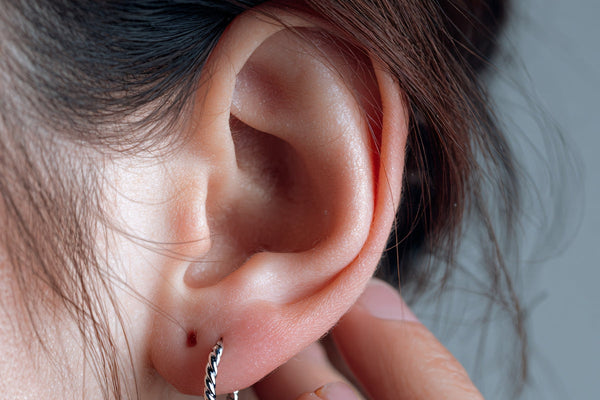
Ménière’s Disease is a long-term inner ear condition that can affect both balance and hearing. It often causes recurring episodes of dizziness, hearing loss, tinnitus (ringing in the ears), and a feeling of fullness or pressure inside the ear. Although there is currently no cure, many people successfully manage the condition and lead full, active lives with the right care and support.
At Leightons, we understand how disruptive these symptoms can be. Our experienced audiologists can help assess your hearing, and guide you towards the best support options to help you manage your symptoms confidently.
What is Ménière’s disease?
Ménière’s Disease is a chronic disorder of the inner ear that affects the labyrinth - the part of the ear responsible for both hearing and balance. The condition causes a build-up of fluid (known as endolymph) inside the inner ear, which disrupts the signals sent between the ear and the brain.
This disruption can lead to episodes of dizziness (vertigo), hearing loss, sensation of ear fullness or pressure, and tinnitus. It usually affects one ear at first but can develop in both over time. The frequency and intensity of attacks can vary greatly from person to person.
What causes Ménière’s disease?
The exact cause of Ménière’s Disease isn’t fully understood, but it is believed to be linked to abnormal fluid build-up in the inner ear. Factors that may contribute include:
- Viral infections or inflammation of the inner ear
- Autoimmune responses, where the immune system attacks the inner ear
- Allergies or sensitivity to certain foods
- Poor circulation or fluid regulation issues
- Genetic factors or family history
Lifestyle factors such as stress, salt intake, and caffeine may trigger or worsen symptoms in some people.
Common symptoms of Ménière’s disease
Ménière’s Disease is characterised by four main symptoms, which can vary in intensity and duration:
- Vertigo - a spinning or swaying sensation that can last from minutes to hours.
- Hearing loss - usually in one ear, often fluctuating in the early stages.
- Tinnitus - ringing, buzzing, or roaring sounds inside the affected ear.
- A feeling of fullness or pressure in the ear before or during an episode.
Other symptoms can include nausea, imbalance, and fatigue following a vertigo attack. Over time, some people may experience more permanent hearing changes.
Living with Ménière’s disease
Living with Ménière’s can be challenging, but there are ways to manage symptoms and reduce their impact:
- Identify and avoid triggers such as caffeine, alcohol, and high-salt foods.
- Manage stress, as anxiety can sometimes make symptoms worse.
- Stay hydrated and eat regular, balanced meals.
- Use balance and vestibular rehabilitation exercises to help recovery after dizzy spells.
- Keep a symptom diary to help track triggers or patterns.
With professional guidance and ongoing monitoring, many people find that symptoms become more predictable and manageable over time.
How is Ménière’s disease diagnosed and treated?
Diagnosis is usually made by an ENT specialist, based on your medical history, symptoms, and hearing test results. Treatment focuses on reducing the severity and frequency of attacks rather than curing the condition. This may include:
- Medication to relieve vertigo, nausea, or inflammation.
- Dietary changes, such as reducing salt, caffeine, and alcohol intake.
- Balance therapy or physiotherapy to help the brain adjust to changes in balance.
- Hearing aids and tinnitus management to address hearing loss and ringing in the ears.
- Surgical treatments in severe or persistent cases (less common).
While Ménière’s Disease is a long-term condition, most people find that with the right care and lifestyle adjustments, their symptoms can be successfully managed.
How Leightons can help
At Leightons, we offer free hearing assessments and ear health checks to help monitor your ear and hearing health over time. Our audiologists can:
- Test your hearing to identify any changes linked to Ménière’s Disease.
- Provide advice on tinnitus management and hearing aid options.
- Work closely with ENT specialists to support your ongoing care.
We’re here to help you understand your condition, protect your hearing, and feel more confident in managing your symptoms.
Book your free hearing assessment today and take the next step towards balanced, comfortable hearing.








